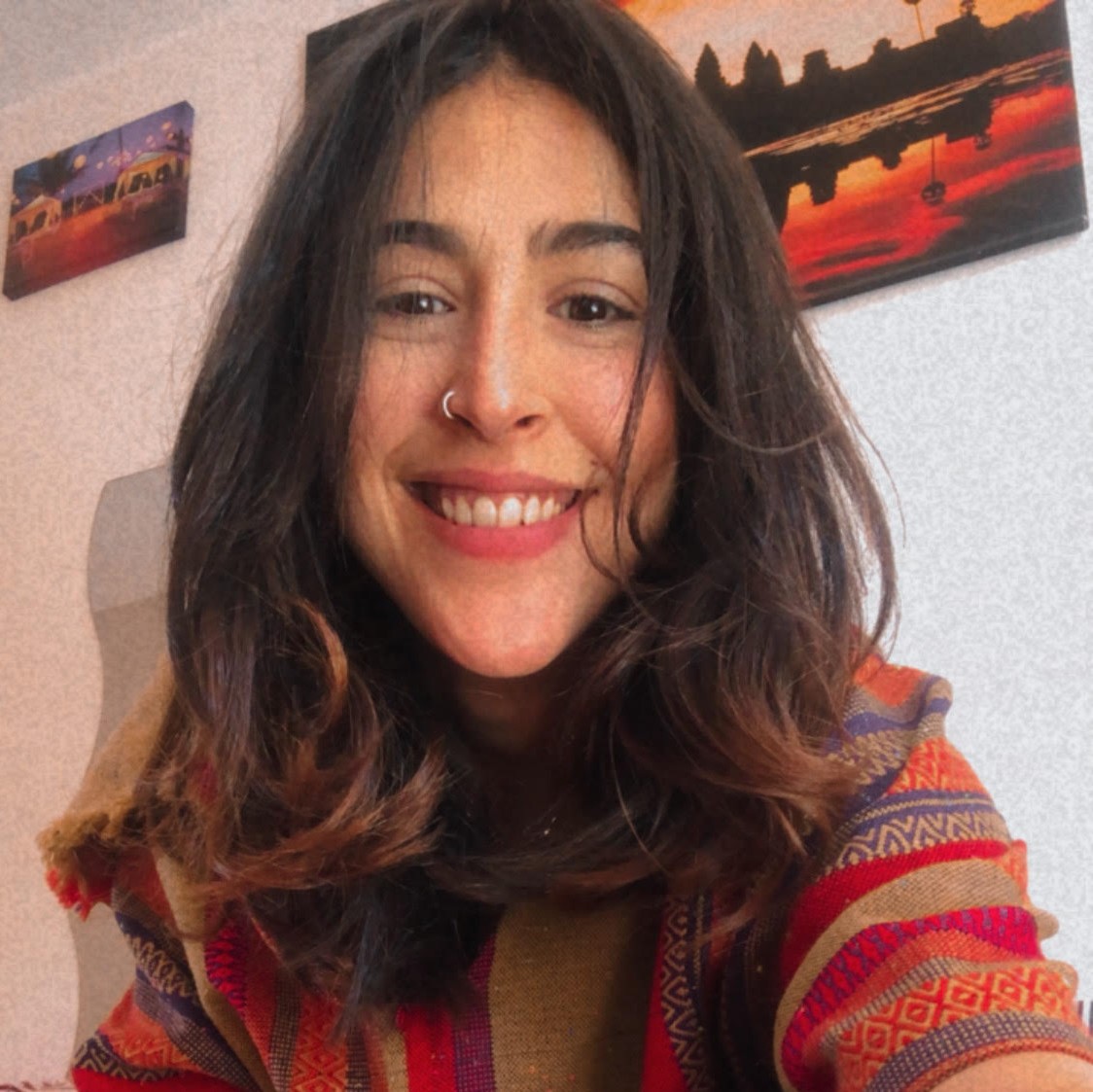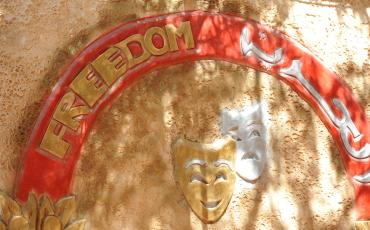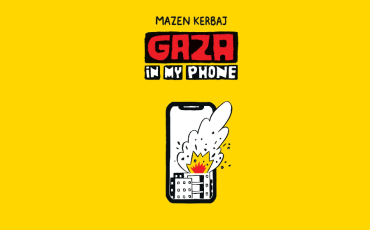With a fine selection of highly artistic and thought-provoking movies, ALFILM Festival sheds light on different societal challenges while presenting the diversity of Arabic cinematographies. Recommendations from this year’s edition.
Is there a better way to reflect on the world than through the lens of a camera? Already in its 13th edition, the ALFILM festival showed the power of film: portraying contemporary societal matters in ways that resonate with audiences and awaken a sense of curiosity. The festival program featured a diverse selection of film “from Somalia to Morocco, from Yemen to Palestine”, dealing with topics such as sexism, identity crisis, sexuality and much more.
This year, the ALFILM SPOTLIGHT section titled ‘From Civil War to Chaos: A Tribute to Filmic Resistance’, focused on Lebanon. The chosen films revolve around the present crisis and the filmmakers’ role in contributing to and documenting resistance in Lebanon. A premiere in this year’s edition was the ATELIER section, giving space to Arab filmmakers in exile. The interrelatedness of identity, negotiations and filmmaking got a central stage at ALFILM, through the form of panels for critical discussions and dialogue between filmmakers and film industry professionals.
Dis:orient had the opportunity to be part of the festival this year, and throughout the festival, I collected some of my highlights and impressions. Logistics first: It is important to know for visitors that the ALFILM festival is not organized in just one venue, but is screened in four different cinema halls around Berlin. It might be exhausting trying to catch various films in different venues on the same day since Berlin is huge!
Nevertheless, most movies are screened twice throughout the festival, which increases the chance of catching all the films you really want to see. You have to wait for next year’s edition to experience ALFILM in person, but from here on, I recommend you keep a pen and your “what-to-watch-next”-list ready.
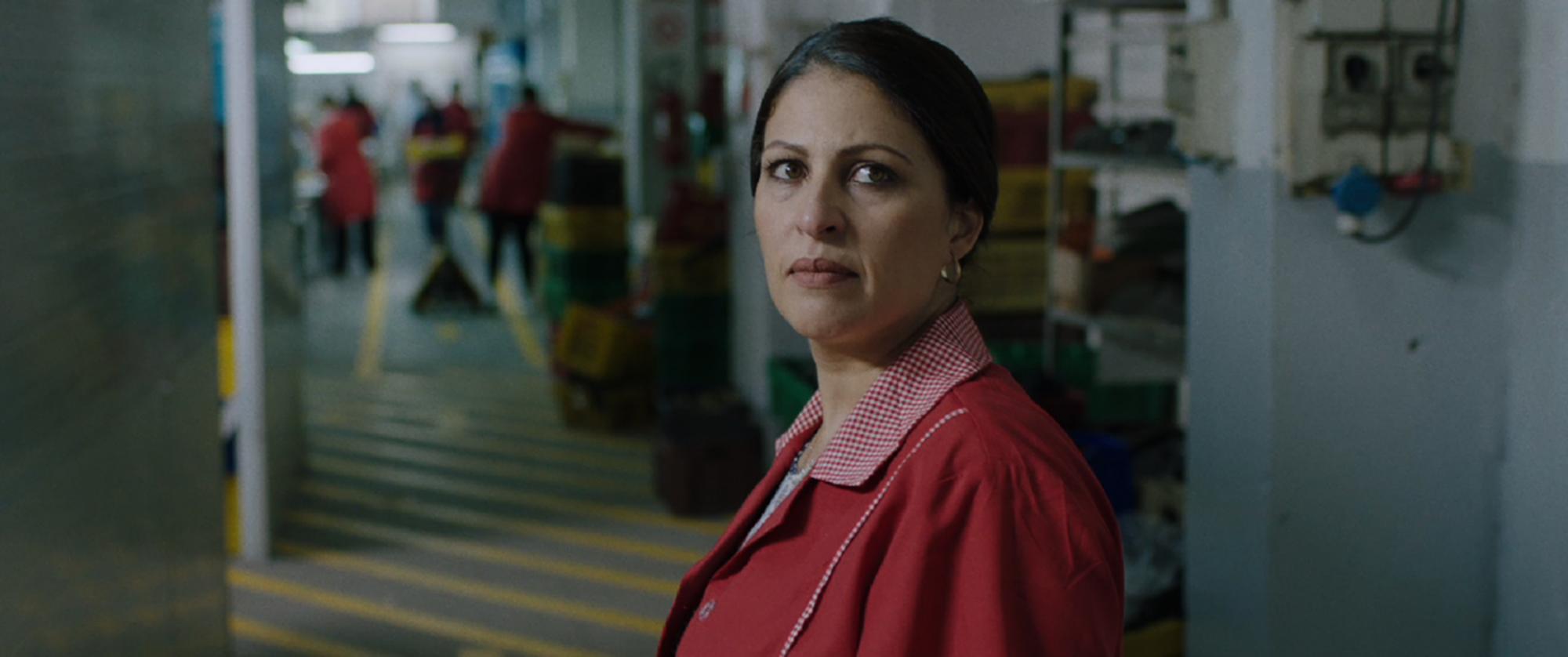
Tunisia’s taboos
Switching from venue to venue, exploring the Berlin cinematic scene and ALFILM’s rich program, I managed to watch quite a few films. The first movie to mention is “Streams”, by Tunisian director and filmmaker Mehdi Hmili. The movie shares Mehdi’s own story, combined with some fictitious twists. “Streams” tells the story of a football-ambitious Tunisian teenager, whose life takes a turn after his mother unjustly goes to jail.
In his film, Mehdi tackled a lot of taboo subjects in Tunisia. With a lot of courage he includes for example the topics of sexuality and sexual identity. He showed a side of reality through amazingly shot crude scenes, in which he chose the right camera angles and lighting to make the audience experience that moment as if it were real. Besides the graphics, I loved the music so much that I even tried to Shazam some of it! Unfortunately, in vain.
Mixed with action, thrill, and intense emotions, “Streams” transmits the idea of how cruel and unforgiving societies can be. The story allows the observer to identify with the characters and internalize their struggles.
During a cigarette break after the screening, Medhi Hmili chats about his film. The movie was dedicated to his mother and what they lived through together. At the same time, he saw it as a personal challenge to divulge his real-life story to the screen and deal with the consequences of breaking taboos. Just like Mehdi, many directors were present at the festival and were open to exchange and discussion, making ALFILM both a professional and an accessible platform for anyone interested in Arabic films.
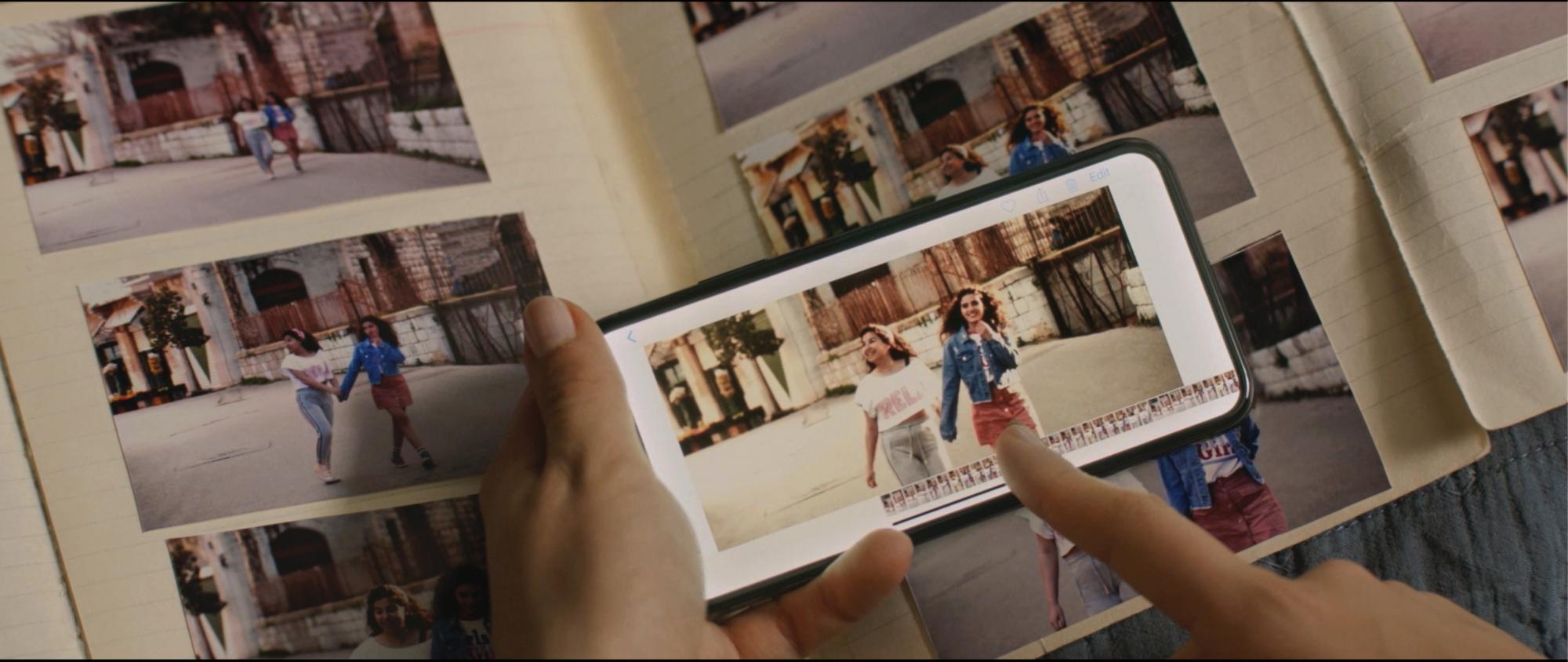
Wartime Memories
Another outstanding film in this year’s film selection is “Memory Box”, directed by Joana Hadjithomas and Khalil Joreige. The film is about an expat Lebanese mother, Maia, living with her teenage daughter Alex in Montreal. They receive an unexpected package from Maia’s best friend, who had recently passed away. It is filled with tapes, pictures, and notebooks from the 1980s in Beirut – a memory box. Despite Maia’s unwillingness to confront the past and open the parcel, her daughter secretly indulges in her mother’s past and discovers some hidden secrets.
The movie makes you live Maia’s teenage memories during wartime through the eyes of her daughter. The director’s trick is to zoom into the pictures that Alex is looking at, and then make them come alive, thereby drawing the audience into the past. The scenes in “Memory Box” were shot very aesthetically with a lot of edited graphic effects that give it a distinctive style. Despite the movie being fiction, it is based on Joana Hadjithomas’ journals and tapes from 1982 to 1988 and Joreige’s wartime photographs, making it even more authentic.
“Memory Box” is an amazing artwork. It takes you on a trip between past and present and imagination and reality. It also conveys the importance of wartime memory and of confronting traumatizing events to be able to move on. Don’t forget to put this movie on your list! It is definitely worth watching.
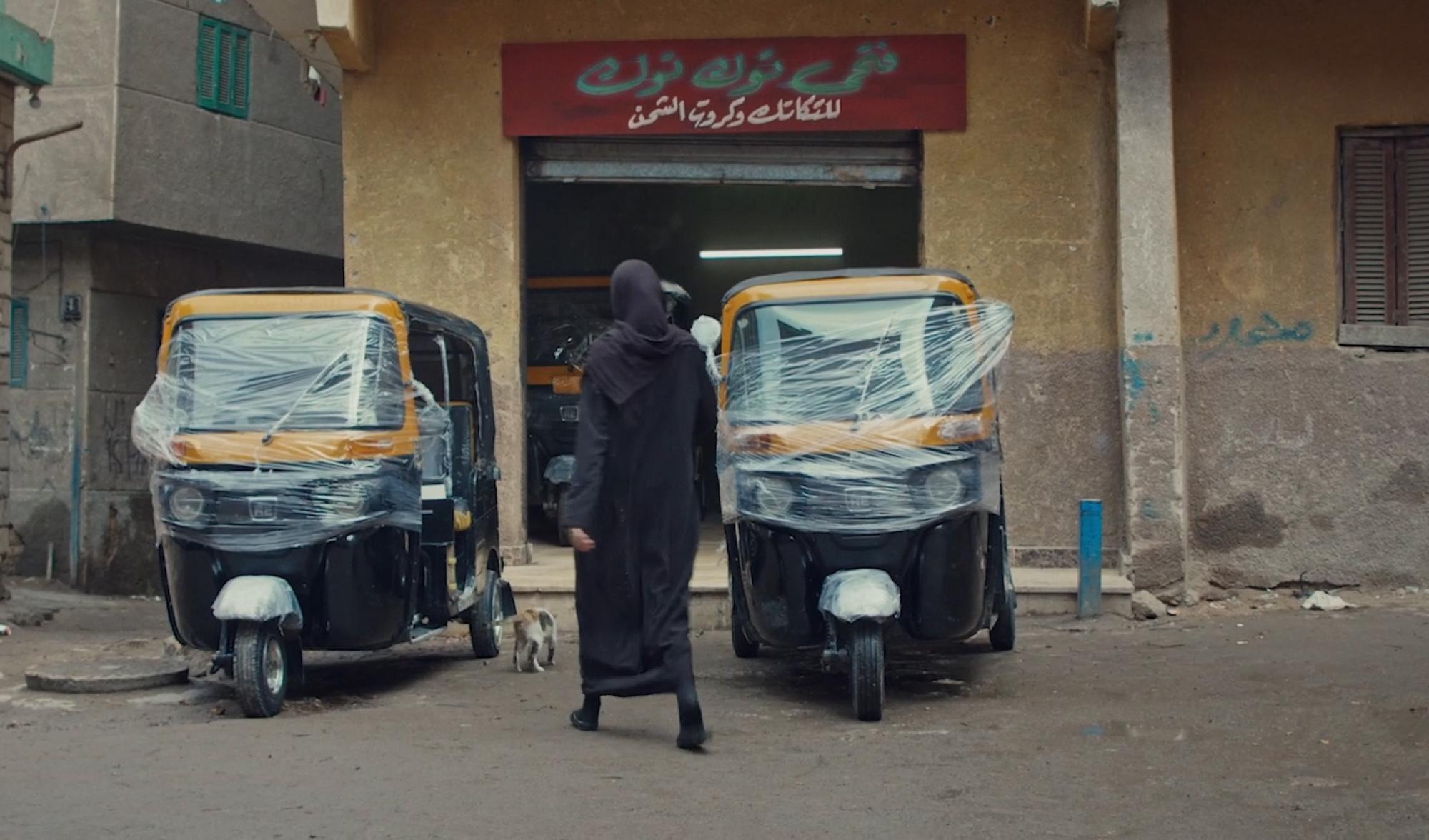
Women’s everyday revolution
The ALFILM festival featured a nice selection of short movies, including “Khadiga”, “Trumpets in the Sky”, “Suspended Wives” and “Tuk-tuk”, to name a few. They mainly deal with the battle of women in Arabic-speaking societies as single mothers, or young girls trying to overcome society’s stereotypes, and gain respect in male-dominated cultures.
“Tuk-tuk”, for example, is an Egyptian short film by Mohamed Kheidr, based on a true story about a poor woman who has to make a living for herself and her children after her husband left them. She started driving a Tuk-tuk and working as a chauffeur, which was an unusual choice for a woman in Egypt, until today.
What is impressive about Tuk-tuk, is that it gives the audience the impression of watching a documentary. Yes, there was a script, dialogues and actors, but once you watch it, it is easy to forget that it is fiction. Kheidr tackles the issue of sexism in male-dominated jobs, showing how threatened; and endangered women can be, competing with men. It also proves the point how patriarchal and harsh Egyptian society can be on women. This is not new, especially not to women, but it is important to confront audiences with this fact to raise awareness.
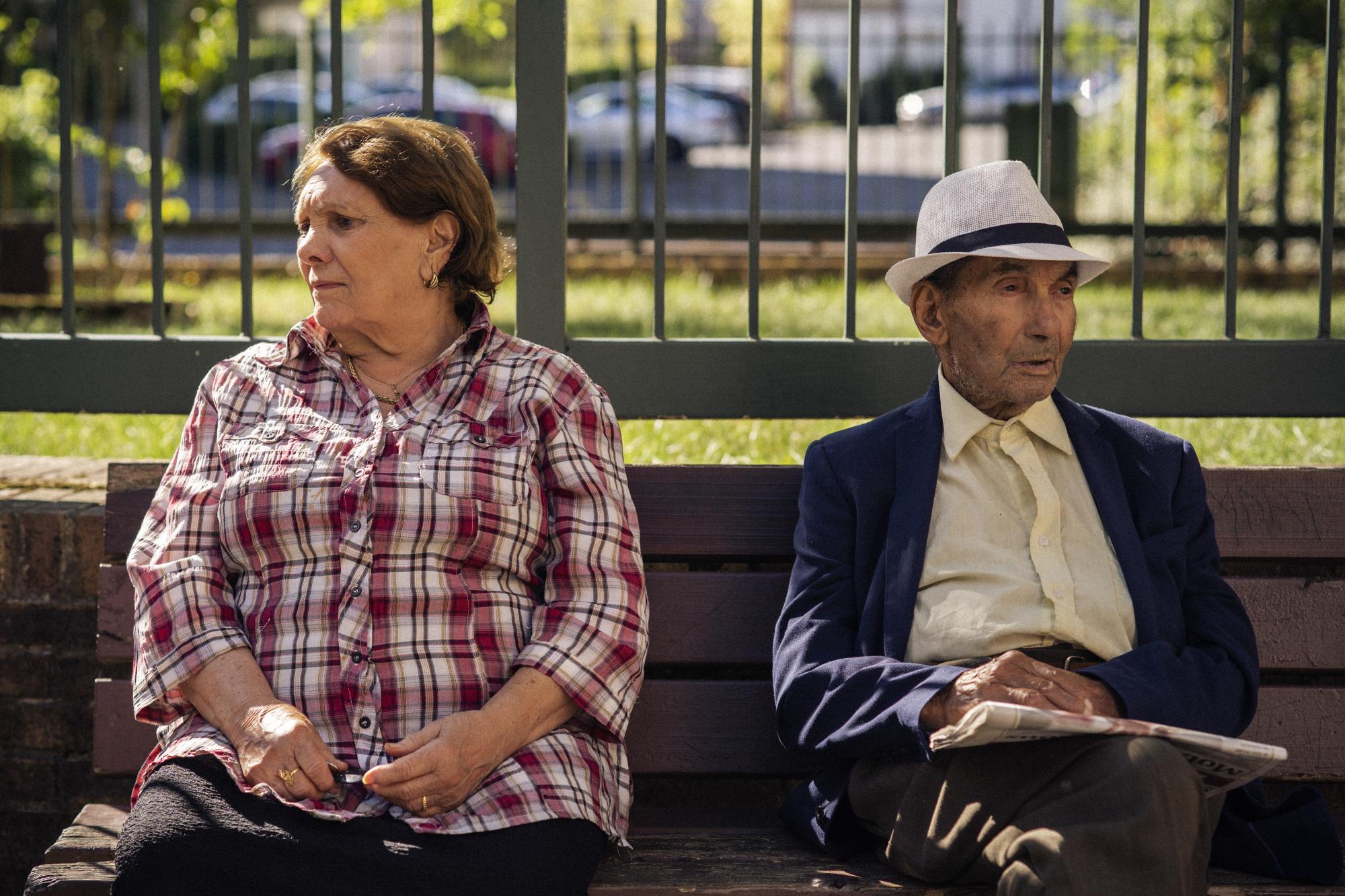
Filming Family Stories
To end this list on a more amusing note, the last film I want to advocate is “Their Algeria” by Lina Soualem. It is a documentary about the director’s family history, or more specifically: her grandparents, who came to France from Algeria in the 1950s for work. After more than sixty years of marriage, the couple decides to separate.
“Their Algeria” follows Lina Soualem’s attempt to know more about her Algerian roots and her family’s history. The film mostly features her grandmother Aïcha. Her grandfather seems to be silent and eaten up by his choice of remaining in France. What is amusing about the documentary is Aïcha’s spontaneity. She gives the documentary a light and funny mood. “Their Algeria” explores the notions of (re)discovering one’s roots and the importance of “home” or “losing home” for expatriates, while the setting offers a warm and familiar ambience.
So, if you are keen on cinema and interested in diving deeper into the Arab world of filmmaking, then I highly recommend ALFILM to you! With its choice of gripping motion pictures that tackle controversial and crucial issues in certain Arabic-speaking countries and its cozy atmosphere, ALFILM festival offers an insight into the lives and struggles of thousands of people around the Arab world. The best thing is that besides the films, it also brings together directors, actors, critics and anyone interested in the stories and filmmaking from the region.


